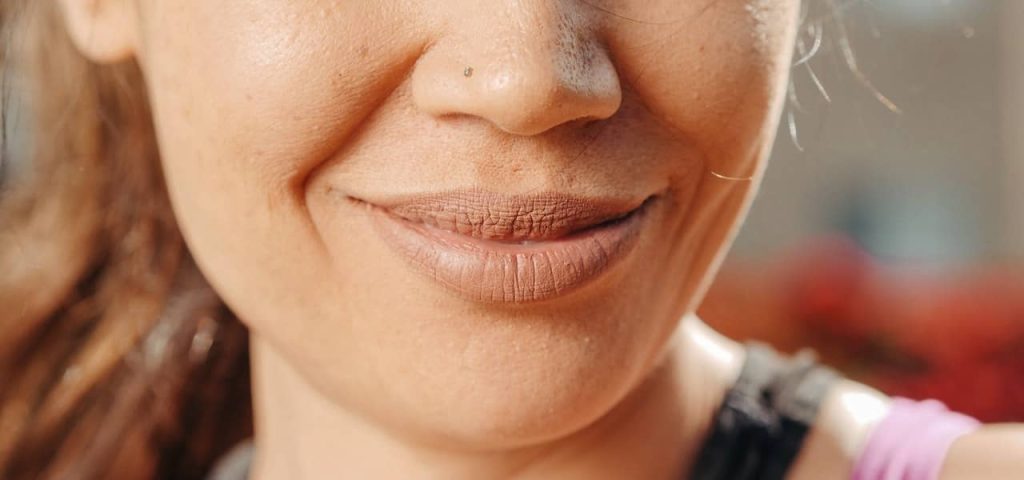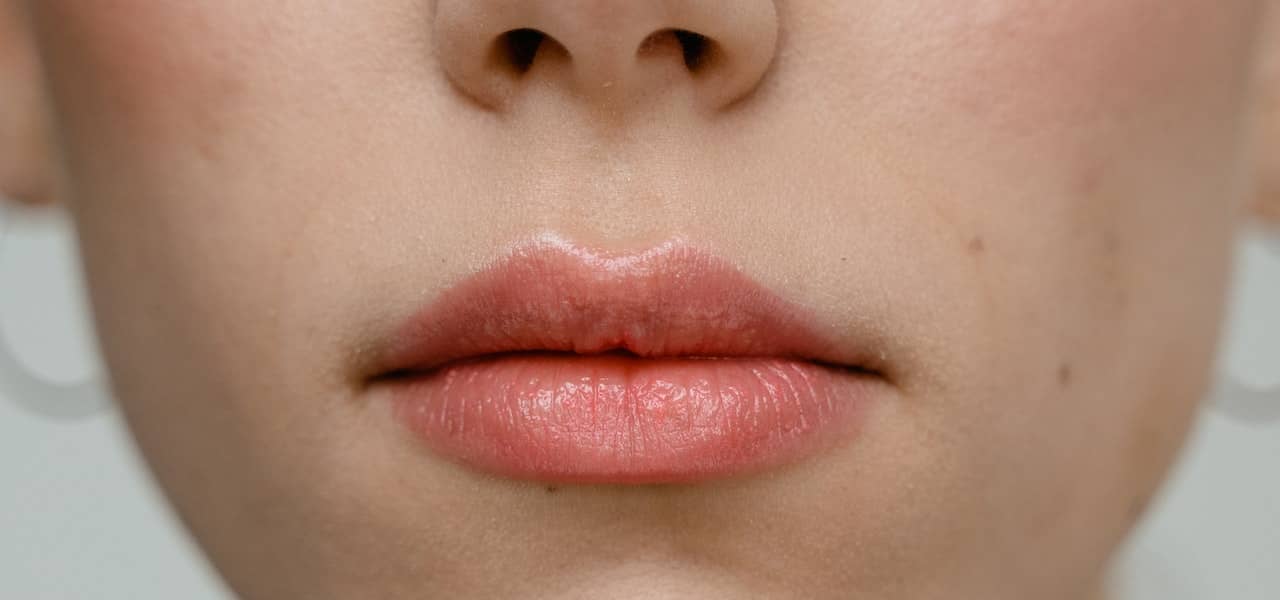Here is your complete guide to what is cause of dry lips.
Introduction to What is Cause of Dry Lips
Dry, cracked, and chapped lips can be a frustrating and painful experience. Not only can it be uncomfortable, but it can also affect your appearance and self-esteem. But what causes dry lips, and how can you prevent and treat them? In this article, we’ll explore the causes of dry lips and provide tips on how to keep your lips healthy and hydrated. Here is your complete guide to what is cause of dry lips.
What are Dry Lips?
Before we dive into the causes of dry lips, let’s first define what dry lips are. Dry lips occur when the skin on your lips becomes dehydrated, causing it to crack, peel, and become inflamed. This can be caused by a variety of factors, including environmental conditions, lifestyle habits, and medical conditions.
Symptoms of dry lips include:
- Rough or scaly texture
- Peeling or flaking skin
- Redness or inflammation
- Pain or discomfort
- Bleeding or cracks in the skin
Why do Dry Lips Occur?
There are many reasons why dry lips occur, including:
Environmental Factors
One of the most common causes of dry lips is exposure to environmental conditions such as cold, dry air, and wind. These conditions can cause the moisture in your lips to evaporate, leaving them dry and chapped.

Lifestyle Factors
Your lifestyle habits can also contribute to dry lips. For example, if you don’t drink enough water or eat a balanced diet, you may become dehydrated, which can affect the health of your lips. Smoking can also cause dry lips, as it can damage the skin and reduce blood flow to the lips.
Medical Conditions
Certain medical conditions can also cause dry lips. For example, some medications can cause dryness as a side effect. Skin disorders such as eczema or psoriasis can also affect the lips, causing them to become dry and inflamed.
Prevention and Treatment of Dry Lips
Now that we know what causes dry lips, let’s explore some prevention and treatment tips.
Lifestyle Changes
One of the most important things you can do to prevent dry lips is to stay hydrated. Be sure to drink plenty of water throughout the day, and avoid beverages that can dehydrate you, such as alcohol and caffeine. Eating a balanced diet that includes plenty of fruits and vegetables can also help keep your lips healthy.
If you smoke, consider quitting. Smoking not only causes dry lips but can also increase your risk of developing oral cancer.
Lip Care Tips
In addition to lifestyle changes, there are several lip care tips that can help keep your lips healthy and hydrated:
- Moisturize: Use a lip balm or ointment to keep your lips moisturized. Look for products that contain ingredients such as beeswax, shea butter, or petrolatum, as these can help lock in moisture and protect your lips from the elements.
- Avoid Licking Your Lips: While it may be tempting to lick your lips when they feel dry, this can actually make the problem worse. Saliva can evaporate quickly, leaving your lips even drier than before.
- Use Sun Protection: Just like the rest of your skin, your lips can be damaged by the sun’s UV rays. Look for lip balms that contain SPF to protect your lips from sun damage.
Medical Treatment Options
If your dry lips are caused by a medical condition or medication, your doctor may recommend a treatment plan. For example, if you have eczema or psoriasis, your doctor may prescribe a topical ointment or cream to soothe the inflammation and prevent dryness.
Over-the-counter products such as hydrocortisone creams or antihistamines can also help reduce inflammation and relieve itching.
In some cases, your doctor may recommend prescription medications such as immune-modulating drugs to treat underlying medical conditions that are causing your dry lips.

Why are my lips peeling so much?
If you’re experiencing excessive peeling of your lips, here are some possible reasons:
- Your diet consists of a lot of salty or spicy foods: Consuming salty or spicy foods can lead to dehydration, which can cause dry and peeling lips.
- You’ve been licking your lips a bunch: Licking your lips can strip away their natural oils, making them dry and susceptible to peeling.
- You fried your lips in the sun: Overexposure to sunlight can damage your lips and cause them to peel.
- You’re dehydrated: Dehydration can cause your lips to lose moisture, leading to dryness and peeling.
- You’re constantly exposed to dry air: Dry air, whether from indoor heating or outdoor weather conditions, can cause your lips to become dry and peel.
- Your medication is drying out your lips: Some medications, such as acne treatments and blood pressure medication, can cause dryness and peeling of the lips as a side effect.
- You’re experiencing yeast overgrowth: Yeast overgrowth can cause angular cheilitis, a condition where the corners of your lips become red, cracked, and sore.
- You have actinic cheilitis: Actinic cheilitis is a precancerous condition that affects the lips, causing them to become dry, scaly, and peel.
- You have a vitamin deficiency: Deficiencies in certain vitamins, such as vitamin B, can cause dry and peeling lips.
- You’re having an allergic reaction or irritant contact dermatitis: Exposure to allergens or irritants can cause your lips to become inflamed and peel.
- You have lichen planus: Lichen planus is a skin condition that can affect the lips, causing dryness, peeling, and inflammation.
- You have paraneoplastic pemphigus: Paraneoplastic pemphigus is a rare autoimmune disease that can cause severe peeling of the lips and other mucous membranes.
How can you heal your chapped lips fast?
If you’re experiencing chapped lips and want to heal them quickly, here are some tips:
- Stay hydrated: Drinking plenty of water can help keep your lips and body hydrated, preventing dryness and peeling.
- Moisturize: Use a lip balm or ointment to keep your lips moisturized. Look for products that contain ingredients such as beeswax, shea butter, or petrolatum, as these can help lock in moisture and protect your lips from the elements.
- Avoid licking your lips: As mentioned earlier, licking your lips can strip away their natural oils, making them dry and susceptible to peeling. Try to resist the urge to lick your lips, and instead use lip balm to keep them moisturized.
- Use sun protection: Just like the rest of your skin, your lips can be damaged by the sun’s UV rays. Look for lip balms that contain SPF to protect your lips from sun damage.
- Avoid harsh products: Avoid using products that can irritate your lips, such as toothpaste or mouthwash containing alcohol, and try to use gentle skincare products instead.
- Consider medical treatment: If your chapped lips are caused by a medical condition or medication, talk to your doctor about treatment options. They may prescribe a topical ointment or cream to soothe the inflammation and prevent dryness.
- Try natural remedies: You can try natural remedies such as coconut oil, aloe vera gel, honey, or cucumber slices to soothe and moisturize your lips.
- Humidify your environment: If you’re constantly exposed to dry air, using a humidifier can help add moisture to the air and prevent your lips from drying out.
- Maintain a healthy diet: Eating a diet rich in vitamins and minerals can help prevent vitamin deficiencies that can cause dry and peeling lips. Consume foods that are high in vitamins B and E, such as nuts, leafy greens, and whole grains.
- Avoid triggers: If you have an allergic reaction or irritant contact dermatitis, try to identify and avoid the allergen or irritant that is causing the reaction. This may involve changing skincare or makeup products or avoiding certain foods.
Remember, healing chapped lips takes time, so don’t expect overnight results. Be consistent with your lip care routine, and give your lips the TLC they need to stay healthy and moisturized.
Read More About How Curl Hair Flat Iron?
FAQs about What is Cause of Dry Lips
What is the main cause of dry lips?
Dry lips can be caused by a variety of factors, including dehydration, exposure to dry air, excessive sun exposure, harsh skincare products, and certain medical conditions or medications. It’s important to identify the underlying cause of your dry lips in order to effectively treat and prevent them.
Read More About Gluten-Free Fast Food.
What deficiency causes dry lips?
A deficiency in vitamins B and E can contribute to dry and peeling lips. These vitamins play a key role in skin health and can help prevent the loss of moisture from the lips. Consuming a diet rich in these vitamins, or taking supplements if necessary, can help prevent deficiencies and keep your lips healthy and moisturized.
Read More About Almonds – The Perfect Snack for Weight Loss.
How can I stop my lips from being dry?
To stop your lips from being dry, you can try the following:
- Stay hydrated by drinking plenty of water.
- Use a humidifier to add moisture to the air.
- Protect your lips from the sun by using a lip balm with SPF.
- Avoid licking your lips, and use lip balm to keep them moisturized.
- Use a lip balm or ointment containing ingredients such as beeswax or shea butter to lock in moisture.
- Avoid using harsh skincare products and toothpaste or mouthwash containing alcohol.
- Eat a diet rich in vitamins B and E to prevent deficiencies.
- Seek medical treatment if you have a medical condition or take medication that contributes to dry lips.
Read More About How to Lose Thigh Fat: A Comprehensive Guide for Women.
Is dry lips cause of stress?
Stress can be a contributing factor to dry lips, as it can lead to dehydration and weaken the immune system, making you more susceptible to infections that can cause dry and peeling lips.
However, it’s important to identify and address the underlying cause of your dry lips, whether it be stress or another factor, in order to effectively treat and prevent them. Incorporating stress-management techniques such as meditation or exercise may help reduce the occurrence of dry lips caused by stress.
Read More About How to Gain Weight During Your Period: Tips and Tricks.
Conclusion
Dry lips can be a frustrating and uncomfortable experience, but they are usually not a serious medical problem. By taking steps to prevent and treat dry lips, you can keep your lips healthy and hydrated. Remember to stay hydrated, eat a balanced diet, and use lip balm or ointment to moisturize your lips. If your dry lips are caused by a medical condition or medication, talk to your doctor about treatment options.
Read More About How Long Do Acrylic Nails Last and How to Make Them Last Longer.
So, the next time you experience dry lips, don’t worry. With a few simple lifestyle changes and some lip care tips, you can keep your lips healthy and comfortable.
Read More About Understanding the Love Language of Physical Touch: Tips and Examples.

